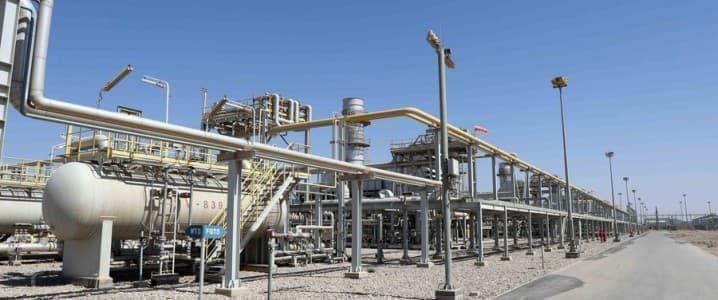Oil & Gas
IRAQ: U.S.’S NEW HOPES ARE DASHED, AS IT SIGNS LONGEST EVER GAS DEAL WITH IRAN.
Irene Jerry

Iraq has long been a strategic focal point for Washington, especially since welcoming the U.S. after the fall of President Saddam Hussein in 2003. Despite promises to reduce its reliance on Iranian gas, Iraq has continued to extend its gas deals with Tehran, receiving financial support from Washington in the process. The recent signing of Iraq’s longest-ever gas deal with Iran for the next five years indicates a clear shift in Baghdad's priorities, likely signaling a significant setback for Washington's diplomatic aims in the region.
The length of Iraq’s new gas deal with Iran underscores Baghdad's commitment to the agreement, suggesting that Washington will view it as a serious political statement. This move may be seen as a betrayal of assurances given by Iraq leaders to reduce gas imports from Iran in exchange for U.S. funding. Baghdad's ongoing gas imports from Iran have been a key source of funding for Tehran, as acknowledged by Iran’s Deputy Oil Minister. Additionally, Iraq's cooperation with Iran on shared oil fields has been instrumental in maintaining Iran's economy despite sanctions.
Iraq's latest gas deal with Iran indicates a shift towards stronger alliances with Iran, China, and Russia, potentially closing the door on Washington's diplomatic advances. For China, Iraq and Iran represent a significant source of oil and gas in the Middle East, enabling China to exert geopolitical pressure against the U.S., China has successfully transformed Iran into a Middle Eastern equivalent of Hong Kong through comprehensive agreements, and a similar arrangement is evident in the Iraq-China Framework Agreement of 2021.
Recent developments, including major infrastructure projects in Iraq awarded to Chinese companies, underscore the growing influence of China in the region. Iraq's approval of significant funds for infrastructure projects in Basra and the construction of a civilian airport in Nasiriyah, with potential military components accessible to China, highlight the deepening ties between Iraq and China. These developments suggest a strategic realignment in Iraq's foreign relations, with potentially far-reaching implications for the region and beyond.
